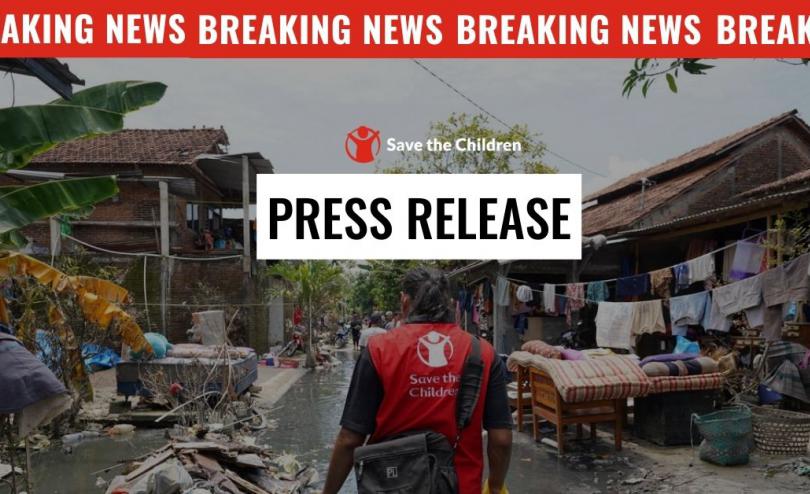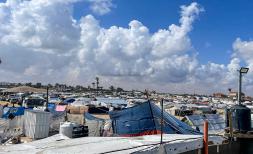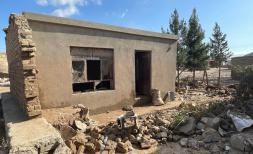Drought hits 900,000 families across the Philippines, with some children forced from school to help on farms

MANILA, 10 May 2024 – A protracted drought across large swathes of the Philippines is impacting over 900,000 families[1] – or over 3.7 million people - including some who have taken their children out of school to help deal with the economic impacts of the crisis.
The drought, which is being attributed by the Government of the Philippines and other experts to the El-Nino phenomenon and being exacerbated by the climate crisis, is affecting 14 out of Philippine's 17 regions, and some 5,000 villages across the country. It’s already severely damaged local agriculture, caused severe water shortages, eroded soil health, and made crops more susceptible to pests and disease.
Several families have told Save the Children that their children have had to stop going to school temporarily to help on family farms to survive financially through the drought. While schools remain open for now, the aid agency is concerned about the worsening impact of the crisis on children’s education, health and wellbeing.
Heatwaves and drought attributed to El Niño - a natural weather phenomenon whose impacts are being exacerbated by the climate crisis – have hit several Asian countries over the past weeks, including drought in Vietnam’s Mekong Delta and school closures because of extreme heat in parts of South and Southeast Asia.
Climate and environmental threats are responsible for the disruption of the education of over 37 million children each year, with children from with lower-income homes and countries more likely to live in areas impacted by climate change.
Save the Children Philippines has partnered with the Western Samar Development Foundation (WESADEF) Inc. to distribute cash grants to approximately 200 farming families in the Samar province, and has introduced drought-resilient seeds to help farmers.
Teresita Abides, a 46-year-old mother whose family depends heavily on rice farming, said her children had to stop school to help the family cope with drought on their farm:
“Before, our two-hectare farm used to produce around 70 sacks of rice, but because of the impact of El Niño, we lost everything.”
Rex Abrigo, Environment and Climate Change Advisor at Save the Children Philippines said:
“The climate crisis is a child rights crisis with children facing more extreme weather events every year. As we’re seeing in the Philippines, climate threats also disrupt learning. Adults cause the climate crisis, but children endure the most severe consequences. This highlights the urgent need for proactive measures to protect vulnerable communities, especially children, from the effects of climate change.”
Through our global Generation Hope Campaign, Save the Children Philippines actively advocates for climate adaptation measures to safeguard the well-being of children affected by climate crises.
Save the Children has been working in the Philippines since 1981 with programs in humanitarian response, health and nutrition, education, and children's rights and protection.
ENDS
For further enquiries please contact:
Amy Lefevre, Global Media Manager, Asia: Amy.Lefevre@savethechildren.org
Kay Maatubang, Brand and Integrated Communications Manager, Save the Children Philippines: felycora.maatubang@savethechildren.org
Please also check our Twitter account @Save_GlobalNews for news alerts, quotes, statements and location Vlogs.




